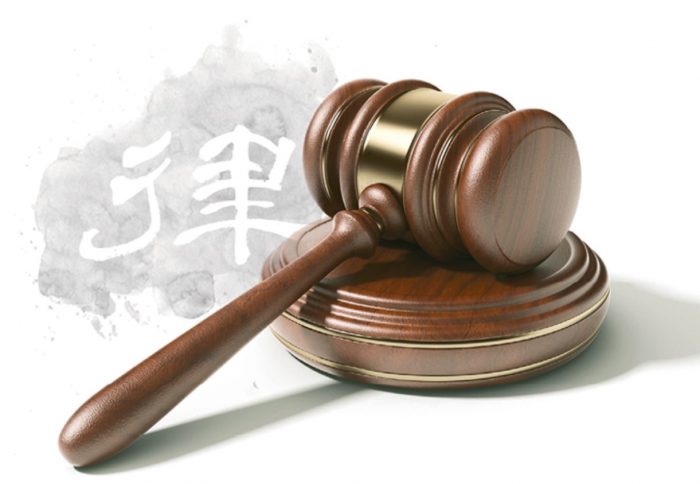
The term Amicus Curiae is a legal Latin word that means the friend of the court. According to this definition provided in the law books, this term is referred to a professional organization or a person who is not subjected to any specific litigation but has permissions of the court to advise the law that directly affects the case in question. Thus, Amicus Curiae is a member of the judiciary or some other standby that informs about any mistaken or doubtful fact presented before the court of law.
He is a person who volunteers to assist the court of law in deciding certain matters. However, the court is free to choose whether or not to accept the information given by him. The information provided by this person is usually a kind of a short, unbiased testimony. To know more about it, check out this website.
Amicus Curiae is a person who either volunteers to provide the information or is appointed by the judiciary. He doesn’t have any interest in the case’s judgment, nor he favors any particular party. He only assists the tribunal in dealing with the following issues:
- His assistance usually settles disputes between the two parties involved.
- Investigates and provides recommendations on the custody of a child, child’s support, medical help, etc.
- Ensures that the orders are all obeyed after the judiciary has passed its judgment.
- People are given court forms for specific family problems that require legal intervention. (You are not required to seek help from a lawyer to fill such forms.)

Is Amicus Curiae Capable of Issuing Orders in a Case?
No. An Amicus Curiae can only give his suggestion, and then the court decides whether or not to act according to his ideas.
Roles Of An Amicus Curiae for the Custody Of A Child And Divorce Cases
When the case of a divorce or child’s custody begins, the two parties are asked to go through a procedure called conciliation by the court. In such a situation, the Amicus Curiae needs to meet both parties and help them decide on their child’s reconciliation or joint custody. Alternatively, they also assist the parties in determining parenting time agreements and settle the divorce alimony.
There are times when the parties do not agree on conciliation. Then the Amicus Curiae suggests the parents change the parenting time, temporary custody, etc. Suggestions are made after considering both the parents’ financial condition and evaluating the child’s opinion. The court then passes its judgment based on Amicus’s judgment, provided there are no objections by the parties.
If required, Amicus may be asked by the court to conduct a thorough investigation. The Amicus Curiae must come up with the best solution for the parents and then help them settle the agreements made on parenting time. He may feel the need to talk to the parties’ family members and close people. He can also speak to their children, and his report will be hugely based on the children’s opinion.

Both parties will receive a specimen of the FOC reports. They can also object to the judgment made and file a complaint. If either one or both the parents file a complaint against the proposal, the court will hold another hearing to gather new evidence. At the second hearing, both parties can let the court know about their opinion. The court will then consider their opinion, the Amicus Curiae’s recommendation, and conclude its judgment. However, the court generally gives additional weightage to the Amicus Curiae’s recommendation. Alternatively, the court can choose not to consider the parties’ opinion or the AC’s recommendation. It may decide or suggest something entirely different from these two factors.
If the court feels the necessity, then it can make temporary orders, which are generally exercised until either parent presents evidence in their support at the hearing.
The Amicus Curiae can decide to begin the process of enforcement if even a single party files a complaint in writing against the violation of court proclamations. The AC may choose to take the following enforcement actions:
- Filing a petition to make required modifications to the parenting time.
- Finding other solutions.
The Amicus Curiae may also apply enforcement methods when it notices a breach of court orders. Some of them are mentioned as follows:
- Withholding income of either or both involved parties.
- The inception of tax refunds
- Resentment related proceedings
- Suspension of driving, ration, sports, licenses.

Role Of Amicus Curiae In Criminal Cases
The judiciary has the power to appoint Amicus Curiae as a lawyer for those accused who can’t hire an attorney because of financial restraints. The government bears the fees of the Amicus Curiae.
The judiciary may appoint amicus curiae at any point in time, irrespective of the lawsuit’s stage, and he will look after the accused’s legal proceedings. Also, the judiciary appoints another amicus curiae to assist and inform the tribunal about all legal aspects of the case.
Can I Choose Not To Obtain Amicus Curiae’s Assistance?
The parties may also decide not to have any intervention by the Amicus Curiae. When they choose to opt-out of the services, they allow the judiciary to proceed with the case’s normal hearing. Also, keep in mind, if you decide not to take help from Amicus, then the other parent may stop the child’s support payment anytime, and you will not be able to get the money.
You need to qualify to opt-out of their services, and the requirements of withdrawing depend on whether the case has already been opened in the court of law. If the court has not contacted you regarding any support order, then there are chances that your case has not been opened yet, and thus, you need not worry.

Final Word
The Amicus Curiae helps the court to give an unbiased judgment. He also provides court forms on various issues which you can fill out without the lawyer’s help. Having a FOC ensures that your case gets the correct judgment.
















